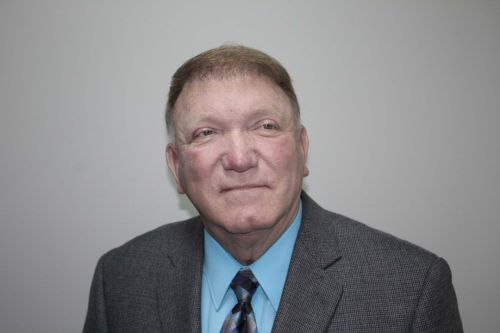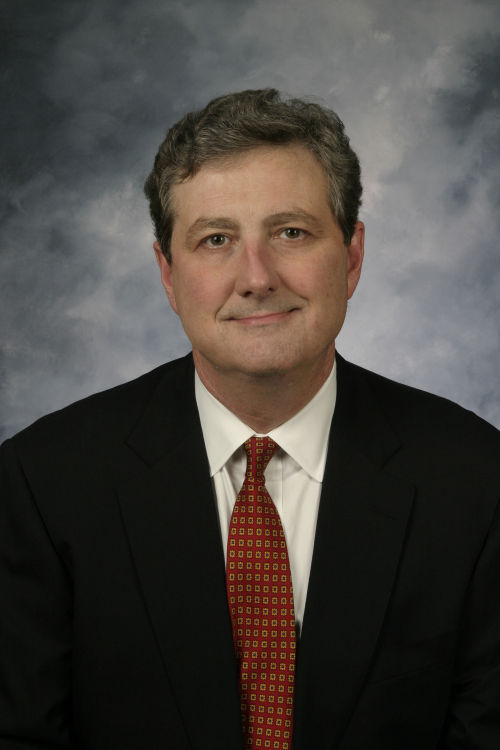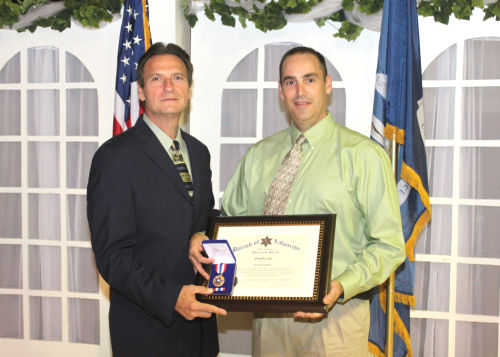
Laf. councilman hospitalized
April 15, 2014
HB142 lauded for university funding
April 15, 2014Early voting begins Saturday on the sheriff’s office referendum to levy a new sales tax for construction of a new jail.
Voters parishwide will decide May 3 on a 0.2-percent, 30-year sales tax referendum the sheriff says would be used to fund construction and operation of a new 600-bed detention center. Early voting lasts through April 26.
Should voters approve his proposal and the Lafourche Parish Council later discover an alternative funding source, Sheriff Craig Webre would reduce the tax proportionately, he told the council last week.
“Any dollars that you can find, that you can generate, that you can create, that you can then put to this, I will roll back, dollar for dollar, this proposition,” Webre said.
Webre’s finalized proposal was first made public March 19, less than two months before the election date. The parish’s law enforcement district submitted the proposition to the Secretary of State.
The 600-bed figure was derived from conversations with independent jail consultant James Rowenhorst, Webre said. Rowenhorst predicted five years ago Lafourche would need a 900-bed facility.
The estimated cost, expected to total between $25-$30 million, came from estimates by separate jail architects Michael LeBlanc and Skipper Holloway, he added. LeBlanc lobbied for the design contract last fall, suggesting a 540-bed facility at the lower cost. Holloway, whose firm built a 600-bed jail in St. Charles Parish, estimated the higher cost.
Webre reiterated to the council the current jail is overcrowded, noncompliant with federal regulations and its infrastructure is obsolete and deteriorated, questioning the welfare of both inmates and guards. If left unfixed, a federal judge could order the jail’s closure or mandate specific remediation that would tie up the parish’s finances, officials regularly say.
On average, 70 percent of the parish’s inmates are awaiting trial and have not been convicted of the crimes they are charged with, Webre said.
The jail would not serve to house inmates from outside the parish, the sheriff said. Lafourche would not have to ship its overflow prisoners outside the parish – at rates ranging from $22 to $24.39 per inmate per day – but the cost of operating a larger facility will increase.
Parish government pays $17.17 per inmate per day to house its inmates at the Lafourche Parish Detention Center, Parish President Charlotte Randolph said.
Webre’s half-hour address to the council was met with little dissent, even among representatives who have staunchly opposed tax issues in the past.
“I’m almost convinced,” Councilman Jerry LaFont said. “I might vote for it.”
Councilmen have repeatedly floated the idea of consolidating myriad district-specific property taxes to root out unnecessary or duplicitous taxes that could be rededicated toward a new jail, but excluding the failed diversion of library revenues last year, no concrete proposals have been presented to the public.
LaFont said he would support increase in the parish’s hotel-motel occupancy tax to fund construction of a new jail.
“Hell, I would support that one because it’s not going to tax the (local) people,” LaFont said, adding that if Lafourche raised its occupancy tax by 12 percent, it would raise an additional $2.4 million per year.
But hiking the occupancy tax requires approval by the state Legislature, and the issue on the ballot remains an increase in sales taxes.
Louisiana charges a flat 4-percent sales tax, which the state collects, and local jurisdictions can levy taxes upon themselves. Louisiana’s state rate is moderate compared nationally, but its average local rate (4.89 percent) ranks among the five highest in the nation, boosting Louisiana’s total average rate of 8.89 percent beyond all but Tennessee and Arkansas, according to a study by the Tax Foundation, a nonprofit national think tank.
In Lafourche, the local sales-tax rates vary from 4 to 5.2 percent, depending on the jurisdiction (which means the overall rates stretch from 8 to 9.2 percent).
Local jurisdictions can impose upon themselves up to 5 percent in sales taxes, according to Louisiana law. Rates beyond that require approval from the Legislature, through taxes levied by law-enforcement districts –the Lafourche law-enforcement district already collects a 1 percent tax – do not count toward that ceiling.
The North Lafourche Levee District unsuccessfully sought to levy a 1-cent sales tax in December 2012 to help complete a $248-million backlog of projects. Multiple councilman have expressed a belief the district could soon make another attempt at a sales tax.
Dwayne Bourgeois, the levee district’s executive director, said the board of commissioners has not discussed proposing a new tax in nearly a year. He was unsure whether the governing body would propose a new tax later this year.
“We haven’t discussed (a new tax) in many months, probably eight months,” Bourgeois said.
Levee district efforts now are focused on outreach efforts to make sure “our constituents understand the risk of flooding,” coupled with slow progress due to a lack of funding, the director added. “Whether or not we ask for a tax, the decision is ultimately going to be made by the taxpayers,” he said.
The council could also reinstate up to 0.3 percent in sales taxes for solid waste without voter approval because the body rolled back the perpetual tax after it raised surplus funds. A council-created committee is expected to begin investigating solid-waste funding within the next month, council Chairman Daniel Lorraine said.
Louisiana law holds parish governments responsible for establishing and maintaining a “good and sufficient jail,” but Webre said his staff has the expertise and means to absorb this task.
The election is May 3. The deadline to register to vote was April 2. Early voting is from April 19-26; votes can be logged at the parish’s registrar of voters’ offices.











